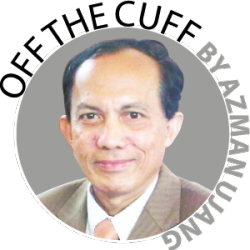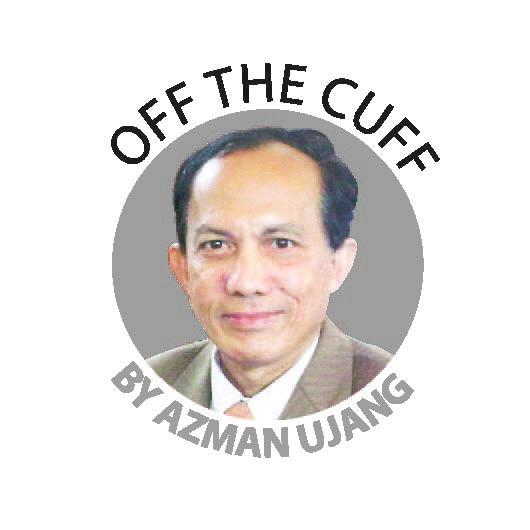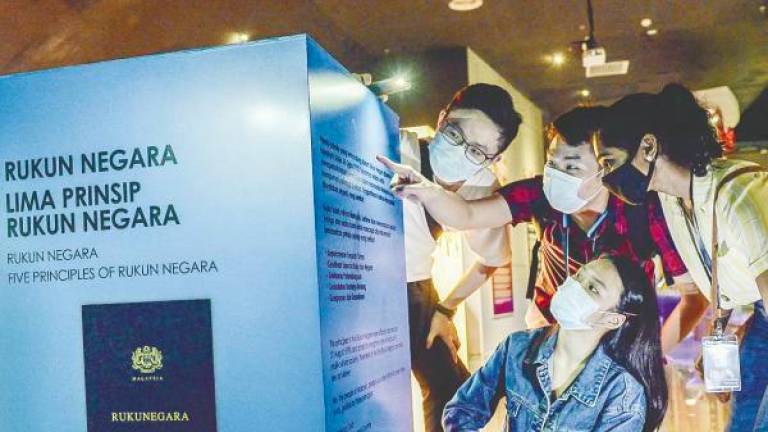THE outcome of last week’s Sabah state election was nothing short of stunning.
It was an election like no other in a state so used to seeing political crises and turmoils over the past decades that it earned the reputation of being the nation’s most highly politicised state.
If you ask the man in the street, everyone would admit that they are suffering from an overdose of politics and the fatigue they felt was obvious this time around when the voter turnout at just around 66% was the lowest ever recorded.
And the timing of having the slightly over one million voters to go to the polling stations across this largely rural state, with its still backward communication and logistics, could not have been worse when the Covid-19 pandemic is still far from being brought under control.
Fears of new clusters of the virus spreading with so much movement of people were justified with the health authorities now reporting a big spike in infections, spreading to states in the peninsula as well.
But due credit should go to the Election Commission, the police, civil servants and the frontliners – tasked with the conduct of the polls under very trying circumstances – for a job well done.
Sabahans had gone to the polls two years earlier than scheduled and all this was because of an attempt by a group of assemblymen from the previous legislature, led by former chief minister Tan Sri Musa Aman, to topple the then state government led by Datuk Seri Shafie Apdal via party-hopping.
It forced Shafie’s Warisan Plus administration to opt for the dissolution of the state legislative assembly.
For the record, party-hopping by elected representatives is very much a by-product of Sabah’s robust politics before it became rather fashionable elsewhere in the nation.
It started in the 1994 state election when the once mighty Parti Bersatu Sabah (PBS), which won the election, was denied its third consecutive term in office due to defections by several newly-elected assemblymen.
This was done via hopping from the party on whose ticket the voters gave them the mandate to the party which lost the election but which eventually formed the new government.
It was from here the word “frogs” started to be used to brand such party-hoppers amid allegations that a lot of money was thrown in to hijack a legitimate election.
Fast forward to 2020, the defeat of the two-year-old state government that Shafie led by the Gabungan Rakyat Sabah (GRS) coalition was unexpected.
Opinion polls and observers pointed to Warisan Plus being returned to power with a comfortable majority of seats that would enable it to continue running the state without being threatened by another round of party-hopping.
The worst-case scenario would have been for Sabah to be back to square one if the winning coalition had won by a narrow margin in the 73-seat assembly.
But this scenario was averted when GRS emerged with 38 seats while Warisan Plus garnered 32 with the other three won by independent candidates.
The new state government, led by Bersatu Sabah chief Datuk Seri Hajiji Mohd Noor, besides having the support of the three independents will now be further strengthened by a law unique to Sabah – it can appoint six nominated assemblymen.
The swearing-in of Hajiji as the new chief minister took place three days after the election was over.
This was unusual as in previous such occasions, the swearing-in happened just a day after.
During this break, the media reported that Warisan Plus was still capable of forming a minority government because as a single party, it won more seats than the others.
It was reported that intense horse-trading was ongoing while Sabahans waited with bated breath to see whether there could be defections to Warisan to make up the numbers.
This didn’t happen and all’s well ended well.
By all reckonings, the GRS government that came to power in Sabah and Hajiji’s appointment as its 16th chief minister is a personal victory for Prime Minister Tan Sri Muhyiddin Yassin, who is Bersatu president.
He must have been the happiest man in the wee hours of Sunday when he monitored the results trickling in slowly but surely in the comfort of his home in Kuala Lumpur after returning from a gruelling campaign in Sabah.
This was Bersatu’s debut in a Sabah election and despite being Malaysia’s youngest political party that was cobbled up just before the 2018 general election, it managed to win the hearts and minds of Sabahans.
More significantly, Muhyiddin, who campaigned hard in the state in support of GRS, had announced earlier that Hajiji would be appointed chief minister if it won the election.
His announcement had met with some resistance. Umno president Datuk Seri Dr Ahmad Zahid Hamidi countered by saying it is only appropriate that any party in GRS with the most seats be given the mandate to lead the new state government.
As it turned out, Umno won 14 seats while Bersatu secured 11 and that would mean Sabah Umno chief Datuk Seri Bung Moktar Radin was in line to claim the top post in the new state cabinet
Hajiji’s appointment means a compromise was struck with Umno which relented for the sake of avoiding an unnecessary crisis.
Bung Moktar is now one of the three deputy chief ministers.
During the campaign, a key message from Muhyiddin to Sabahans was that they ought to elect a government that is on the same wavelength with the Perikatan Nasional (PN), that he leads at the federal level, for the sake of the state’s progress and prosperity.
Shafie had chosen not align Warisan with PN and many times during the campaign emphasised that there was no necessity for him to do so and that Sabah could manage on its own while the federal government is bound to provide whatever assistance as per the Constitution.
It’s obvious that Muhyddin’s message resonated well with the electorate and this, plus other issues, led to Warisan’s surprise defeat.
For Hajiji, 65, who started his career as an announcer with RTM Sabah before entering politics where he rose to be a state minister, this is his fifth term as an assemblyman.
It’s quite a big shoe to fill though for this hitherto low-profile leader with Sabah Umno led by a controversial personality like Bung Moktar and the volatile politics for which Sabah is notorious for.
In his first press conference after being sworn-in on Tuesday, Hajiji noted that he has taken over the reins in unusual times and said his main focus will be on overcoming the economic challenges faced by Sabah due to the Covid-19 pandemic.
Pledging to serve all Sabahans irrespective of their backgrounds or political leanings, he said: “This is a huge and challenging responsibility. My aim is to lead Sabah to greater heights”.
Now that Muhyiddin has got his man as the chief minister after a hard-fought battle, Sabah is now on the right track to shed its reputation as a “left behind” state.
We can only hope their politicians will live up to the trust the voters have placed in them and do what they are elected to do.
Comments: letters@thesundaily.com














